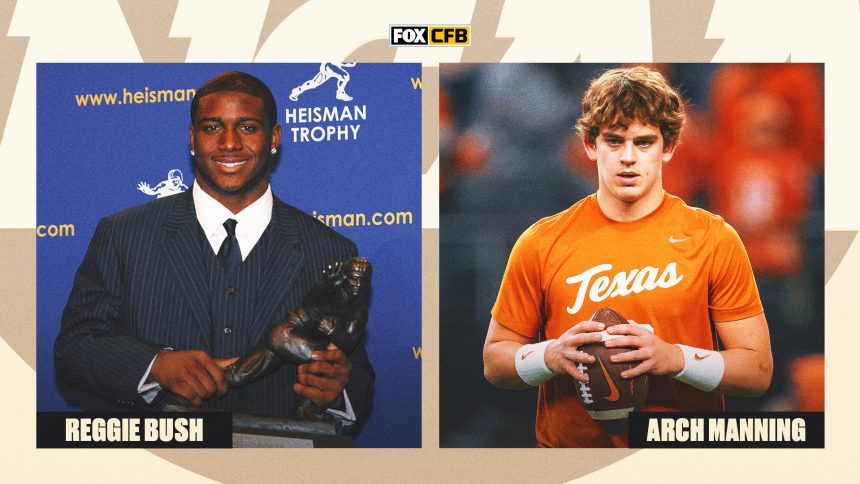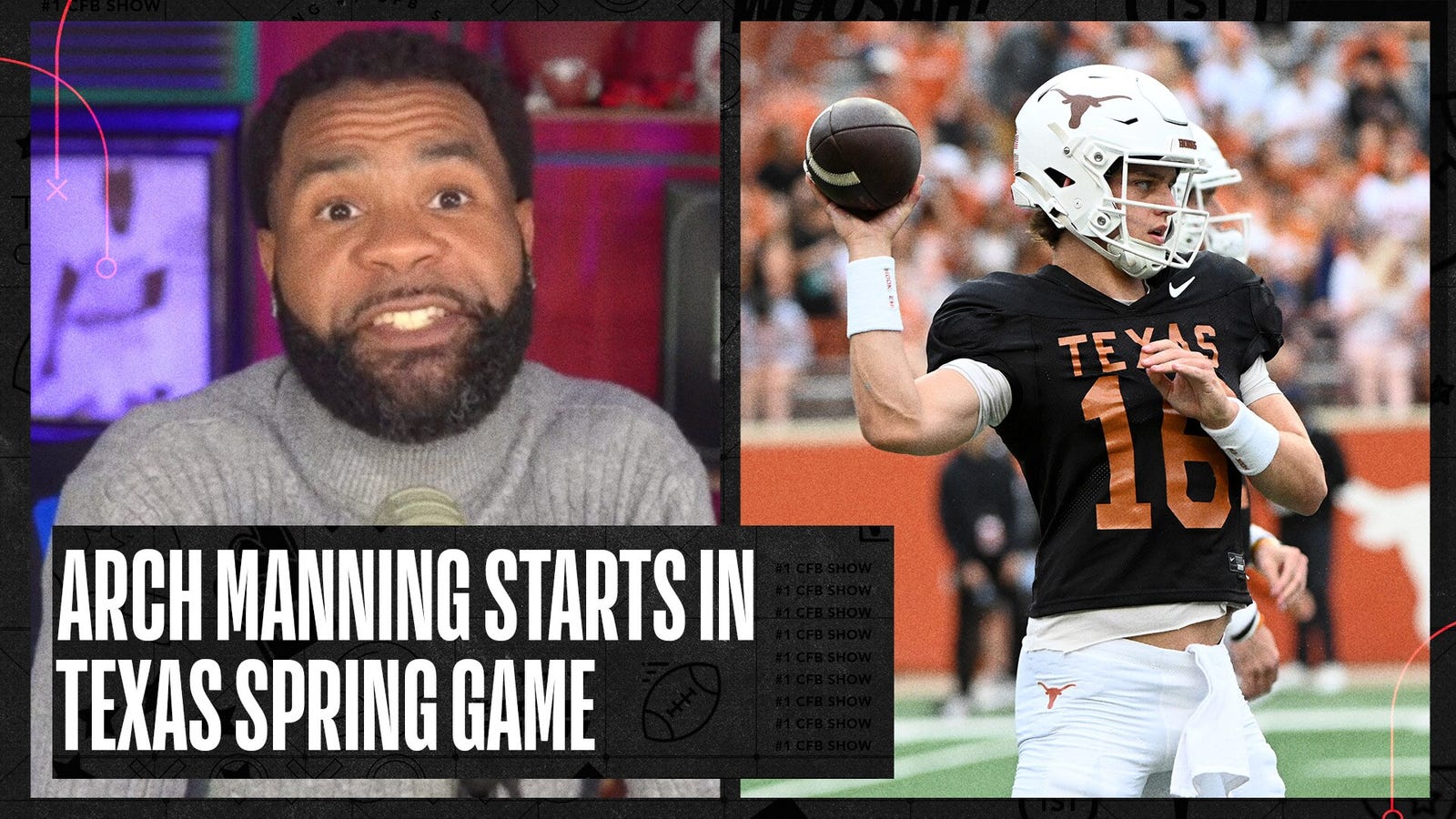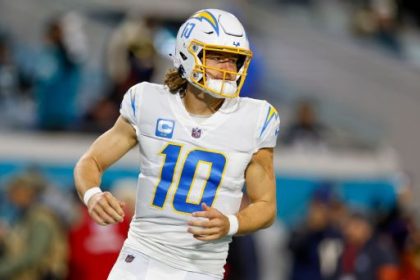With the Heisman Trust deciding to re-gift former USC running back Reggie Bush his Heisman Trophy just a couple of days after an outstanding spring football performance by Texas quarterback Arch Manning, we’re reminded of just how strange and wild the world of college football has become over the last 20 years. One guy, Bush, was robbed of the opportunity to make money from his name, image and likeness, while the other, Manning, is exercising his right not to do so.
This is what we wanted: choices. The right to change your mind.
[Reggie Bush will have 2005 Heisman Trophy returned to him]
Following a 19-for-25 passing outing for 355 yards and three TDs in a televised practice, it would make sense today if Manning were to indulge in an endorsement deal to leverage his image as the heir-apparent to Texas football. That is not the world Bush encountered when he became a phenomenon in South Central.
ADVERTISEMENT
What Bush did — taking impermissible benefits — was against the rules 19 years ago. But in college football, we have always been more concerned with the rules being broken, not whether they actually work. For me, what Bush was found to have done is not unlike imbuing marijuana before many states legalized that action. It’s always felt harsh to incarcerate someone for smoking a joint, and yet we allow that because a law — a rule — has been broken, and punishment follows rule-breaking.
What’s clear now, though, is there are enough folks in and around college football — and around recreational and medical drug use — who have stopped to evaluate the rules and either abolish them entirely or make way for new rules.
In college football, this new era of rule-making has formed around two large pillars: freedom of movement via the transfer portal and the opportunity for NCAA athletes to make money from their name, image and likeness. While Bush might have transferred if he didn’t face severe penalties at USC — despite the dynastic accomplishments of those early aughts Trojans — he likely would’ve done so to further profit from NIL.
In an alternative universe in which Bush and Heisman winner Matt Leinart, a former USC QB and current analyst on Big Noon Kickoff, could have profited from NIL, we might never have seen Alabama‘s 17-year stranglehold on the sport. That’s because USC would have, and might still be — running the sport. The Pac-12 might have subsumed the Big 12. The Big Ten and SEC might not rule.
In 2024, we can see how many players have exercised their right — as justified by a 9-0 Supreme Court ruling — to profit from NIL across all sports. And we count their money, just as we count the money of our head coaches when they aren’t performing at the standard they promised. (Tyler from Spartanburg, an absolute legend.)
We also have found the first high-profile NCAA athlete to completely opt out of any opportunity to profit from NIL: Arch Manning.
Manning, the No. 1 recruit in the 2023 class, a Texas QB and the latest in football’s first family of quarterbacks, has eschewed everything from endorsing Gatorade to refusing to opt in for the return of EA Sports’ highly anticipated college football video game. He’s not just proof positive for any Boomer looking for a straw man that not all players want to profit from NIL, but an example of what we want most in college football, in America, and in life: choices.
The ability to say no, or say yes, or change your mind: That’s what we crave. The Heisman Trust, which should’ve never taken away a trophy that doesn’t even fall under the NCAA’s banner, finally made right a wrong that it let remain so for nearly two decades.
Then the Heisman Trust changed its mind.
RJ Young is a national college football writer and analyst for FOX Sports and the host of the podcast “The Number One College Football Show.” Follow him on Twitter at @RJ_Young and subscribe to “The RJ Young Show” on YouTube.
recommended

Get more from College Football Follow your favorites to get information about games, news and more











